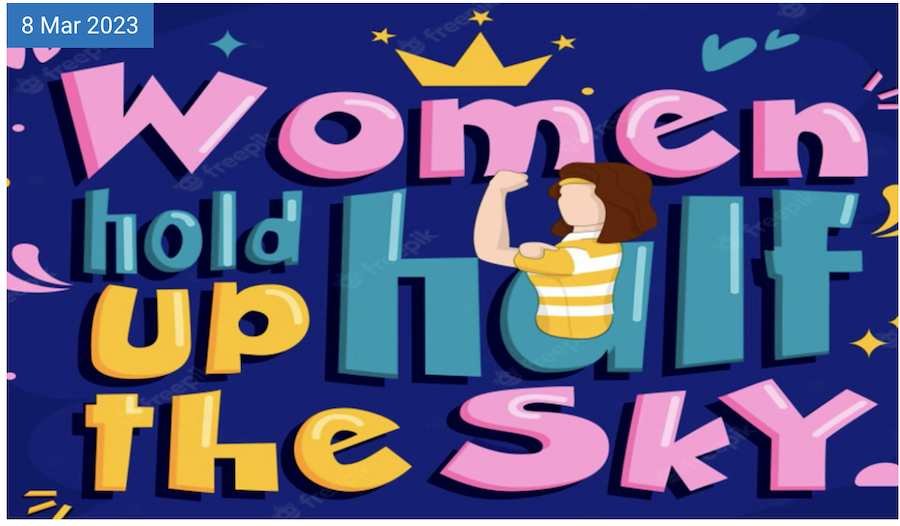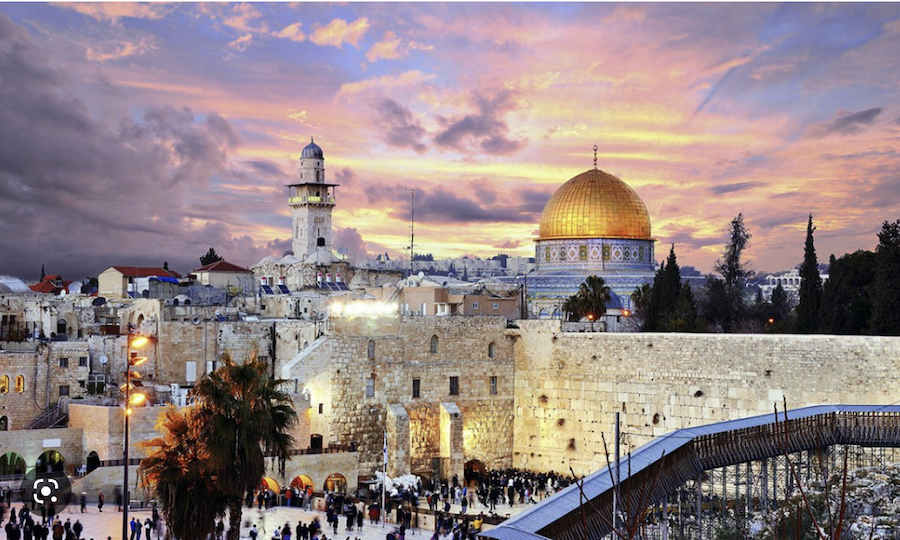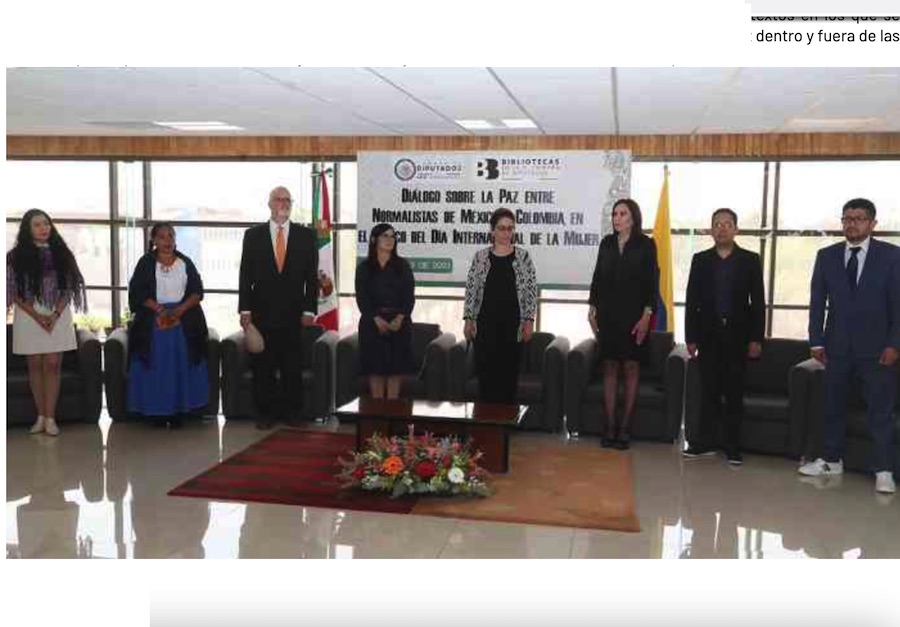International Women’s Day, March 8, was the occasion for many reports promoting a culture of peace through the election, support and mobilization of women.
A new report by the Inter-Parliamentary Union (IPU) informs that women’s participation in parliament has become more diverse and representative. And for the first time in history, not a single functioning parliament in the world is male-only. Overall, six countries now have gender parity (or a greater share of women than men) in their lower or single chamber as of 1 January 2023. New Zealand joined last year’s club of five consisting of Cuba, Mexico, Nicaragua, Rwanda and the United Arab Emirates (UAE), at the top of the IPU’s authoritative global ranking of women in parliament. Other notable gains in women’s representation were recorded in Australia (the strongest outcome of the year with a record 56.6% of seats won by women in the Senate), Colombia, Equatorial Guinea, Malta and Slovenia.
The annual meeting of the United Nations Commission on the Status of Women was devoted this year to the struggle for women’s equality in access to digital information such as smartphones and internet. Ms. Sima Bahous, UN Under-Secretary-General, listed seven ways in which the struggle needs to be carried out, including digital, science and technology education for girls and women as well as jobs and leadership positions for women in the tech and innovation sectors.
Under-Secretary-General Bahous also addressed a session of the UN Security Council devoted to Resolution 1325 on women, peace and security. She called for more resources to the Women’s Peace and Humanitarian fund, a UN-led partnership that has so far supported more than 900 organizations.
Significantly, the Security Council was chaired by a woman from Africa, the Minister of Foreign Affairs of Mozambique. And the Council was addressed by Bineta Diop of the African Union Commission who advocated a strategy of building a network of women leaders on the continent. “We are ensuring that women’s leadership is mainstreamed in governance, peace and development processes so as to create a critical mass of women leaders at all levels,” she said.
The Security Council heard from Nobel Peace Prize winner Leymah Gbowee from Liberia who recommended steps to engage and partner with local women peace activists, who she called “the custodians of their communities.” “We will continue to search for peace in vain in our world unless we bring women to the table,” she warned. “I firmly believe that trying to work for global peace and security minus women is trying to see the whole picture with your one eye covered.”
Further details about women and peacekeeping in Africa are provided by Martha Ama Akyaa Pobee, assistant secretary-general for Africa at the United Nations, in her reflections for International Women’s Day. In my role at the U.N., I have had the opportunity to visit several countries in Africa affected by conflict. “During one such visit to visit Bamako, the capital of Mali, I met women from all over the country who shared with me their experiences and the challenges in making their voices heard. . . . . In South Sudan, we have women like Alokiir Malual who, after immense efforts and advocacy, made history in 2015 as the first woman to sign a peace agreement. . . . On the other side of the border, in Sudan, our political mission facilitated consultations with women’s civil society groups and leaders on bringing the country back to a civilian-led transition.”
A meeting devoted to African women for peace took place virtually in Nigeria on International Women’s Day. Women from the Northwest and North Central regions of the country discussed women’s leadership role in peacebuilding and the need to accelerate the achievements of women in digital technologies.
In addition to Africa, there were contributions from Latin America, Europe, Asia and the Arab States:
Throughout Mexico, the program of Women Builders of Peace continued to advance as Tlaxcala took first place in the country with with 214 networks in its 60 municipalities, integrating 8,208 women and allies. Making women aware of their rights, promoting gender equality, detecting the main problems in each environment, proposing solutions, promoting solidarity and community work, among other actions, are the main work of these networks.
Throughout Europe, the Women’s Peace Leadership Programme of the OSCE (Organization for Security and Co-operation in Europe) develops networks and sponsors activists such as Bojana Mumin of Bosnia and Herzegovina, who is featured in a CPNN article. As she says, “here I am, speaking in person to one of the WPLP participants from Afghanistan, Elham Kohistani, and other women peacebuilders from so many different regions about their experiences in mediation, leadership and peacebuilding efforts.”
In Sri Lanka, thanks to the support of UN Women and the government of Japan, the country has adopted its first National Action Plan on Women, Peace and Security for 2023-2027. Speaking at the launch of the programme on International Women’s Day, the President of Sri Lanka announced that they will host a meeting of leading women activists from countries of SAARC (South Asian Association for Regional Cooperation) this year to advocate for the inclusion of women’s rights within the organization’s framework.
At the International Peace and Humanity Conference in Jordan, delegations from several Arab countries addressed the role of female leadership in promoting a culture of peace, redressing family structure as it relates to gender norms, building a model civil society, and the role model for contemporary Arab women.
In Essaouira, Morocco, The Women’s World Forum for Peace was launched by the “Warriors of Peace”, a movement of Jewish and Muslim women for peace, justice and equality, on the occasion of international women’s day. A dozen activists representing Morocco, Palestine, Rwanda, Senegal, Liberia and Israel , presented captivating testimonies in which they shared their respective experiences, their actions and peace initiatives. The Forum was addressed by Shirin Ebadi, Nobel Peace Laureate from Iran.
To quote Martha Ama Akyaa Pobee, “Women hold up half the sky, and consequently they have a fundamental right to be part of discussions and decision-making that define the future of their families, communities and countries.”
|
WOMEN’S EQUALITY |
TOLERANCE & SOLIDARITY |
SUSTAINABLE DEVELOPMENT |
DISARMAMENT & SECURITY |
|
FREE FLOW OF INFORMATION |
EDUCATION FOR PEACE |
HUMAN RIGHTS |
DEMOCRATIC PARTICIPATION |







